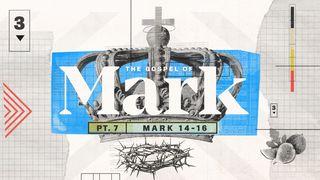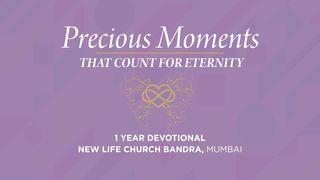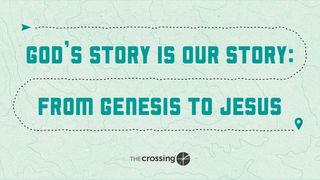Bible Reflections From Scripture Union Volume OneSample

Rich but not Materialistic
Read Genesis 23:1-20
Abraham agreed to Ephron's terms and weighed out for him the price he had named in the hearing of the Hittites: four hundred shekels of silver, according to the weight current among the merchants. Genesis 23:16
Although Abraham had concluded a favourable treaty in which he was granted rights to the water supply, he had never acquired any landed property until now. The first property transaction ever conducted by Abraham was for the burial ground for his wife. In Acts 7:5, we are told that God ‘gave him no inheritance, not even a foot of ground’.
Abraham was not too poor to acquire properties. On the contrary he was very wealthy. The Hittites addressed him as a ‘mighty prince among us’ (v 6). He was not a prince but, similar to many oriental cultures, was honourably addressed, due to his wealth.
The Hittites were not blind to his herds of cattle, camels, donkeys, flocks of sheep, as well as numerous menservants and maidservants. They must have wondered how much gold and silver Abraham had. Abraham had wanted only a cave to bury Sarah, but Ephron, the owner, wanted him to take, not just the cave, but also the field, together with the trees within the borders of the field (vs 11, 17).
Throughout all the polite but subtle conversation, typical of Eastern negotiation, Ephron probably wanted Abraham to pay more! Verse 16 showed that Abraham had ready cash. In modern calculations, four hundred shekels of silver for a grave would be very ‘up market’!
When the need arose, Abraham would spend without hesitation. He was rich but not materialistic, being contented with his semi-nomadic life and living in tents as a livestock farmer. He made his home in the promised land like a stranger in a foreign country (Hebrews 11: 9).
Hebrews 11:10: For he was looking forward to the city with foundations, whose architect and builder is God.
Pray for godliness with contentment.
How do we fight materialism and live simple lives?
Read Genesis 23:1-20
Abraham agreed to Ephron's terms and weighed out for him the price he had named in the hearing of the Hittites: four hundred shekels of silver, according to the weight current among the merchants. Genesis 23:16
Although Abraham had concluded a favourable treaty in which he was granted rights to the water supply, he had never acquired any landed property until now. The first property transaction ever conducted by Abraham was for the burial ground for his wife. In Acts 7:5, we are told that God ‘gave him no inheritance, not even a foot of ground’.
Abraham was not too poor to acquire properties. On the contrary he was very wealthy. The Hittites addressed him as a ‘mighty prince among us’ (v 6). He was not a prince but, similar to many oriental cultures, was honourably addressed, due to his wealth.
The Hittites were not blind to his herds of cattle, camels, donkeys, flocks of sheep, as well as numerous menservants and maidservants. They must have wondered how much gold and silver Abraham had. Abraham had wanted only a cave to bury Sarah, but Ephron, the owner, wanted him to take, not just the cave, but also the field, together with the trees within the borders of the field (vs 11, 17).
Throughout all the polite but subtle conversation, typical of Eastern negotiation, Ephron probably wanted Abraham to pay more! Verse 16 showed that Abraham had ready cash. In modern calculations, four hundred shekels of silver for a grave would be very ‘up market’!
When the need arose, Abraham would spend without hesitation. He was rich but not materialistic, being contented with his semi-nomadic life and living in tents as a livestock farmer. He made his home in the promised land like a stranger in a foreign country (Hebrews 11: 9).
Hebrews 11:10: For he was looking forward to the city with foundations, whose architect and builder is God.
Pray for godliness with contentment.
How do we fight materialism and live simple lives?
Scripture
About this Plan

Scripture Union Peninsular Malaysia's Bible reflections are devotional readings from the thoughts and insights of Asian writers. Consisting of 8 volumes, they cover the whole Bible in four years. Each volume contains books from the Old and New Testaments, and has a mix of historical, poetic and prophetic books, the gospels and epistles. Using this you can cultivate the discipline of a regular, systematic engagement with Scripture and gain an understanding of its magnificent story.
More
We would like to thank Scripture Union for providing this plan. For more information, please visit: http://www.su.org.my
Related Plans

Right From The Heart - Plan Two

The Gospel of Mark (Part Seven)

Precious Moments That Count For Eternity

God’s Story Is Our Story: From Genesis To Jesus

Old and New: Devotions From Time of Grace Ministry

Life Light: Gospel of John

Dear Child: Letters From the One Who Knows You Best

Start Here: The Greatest Commandments

Brave Woman, Mighty God
